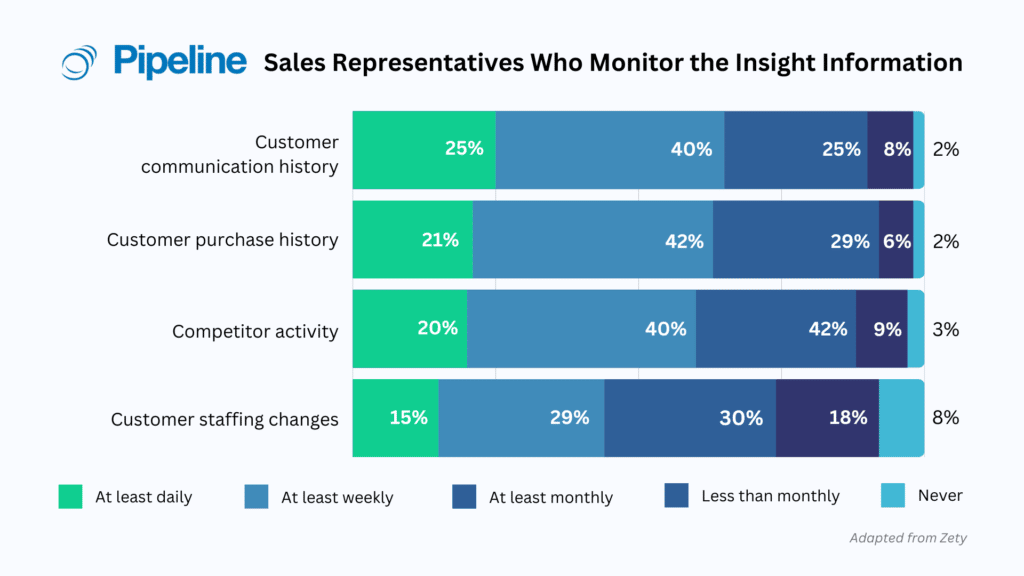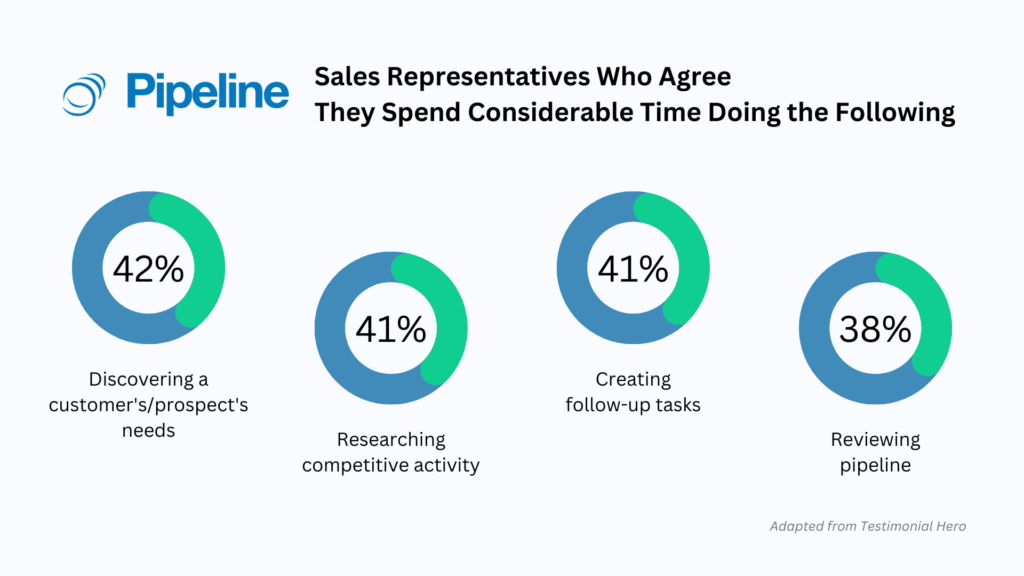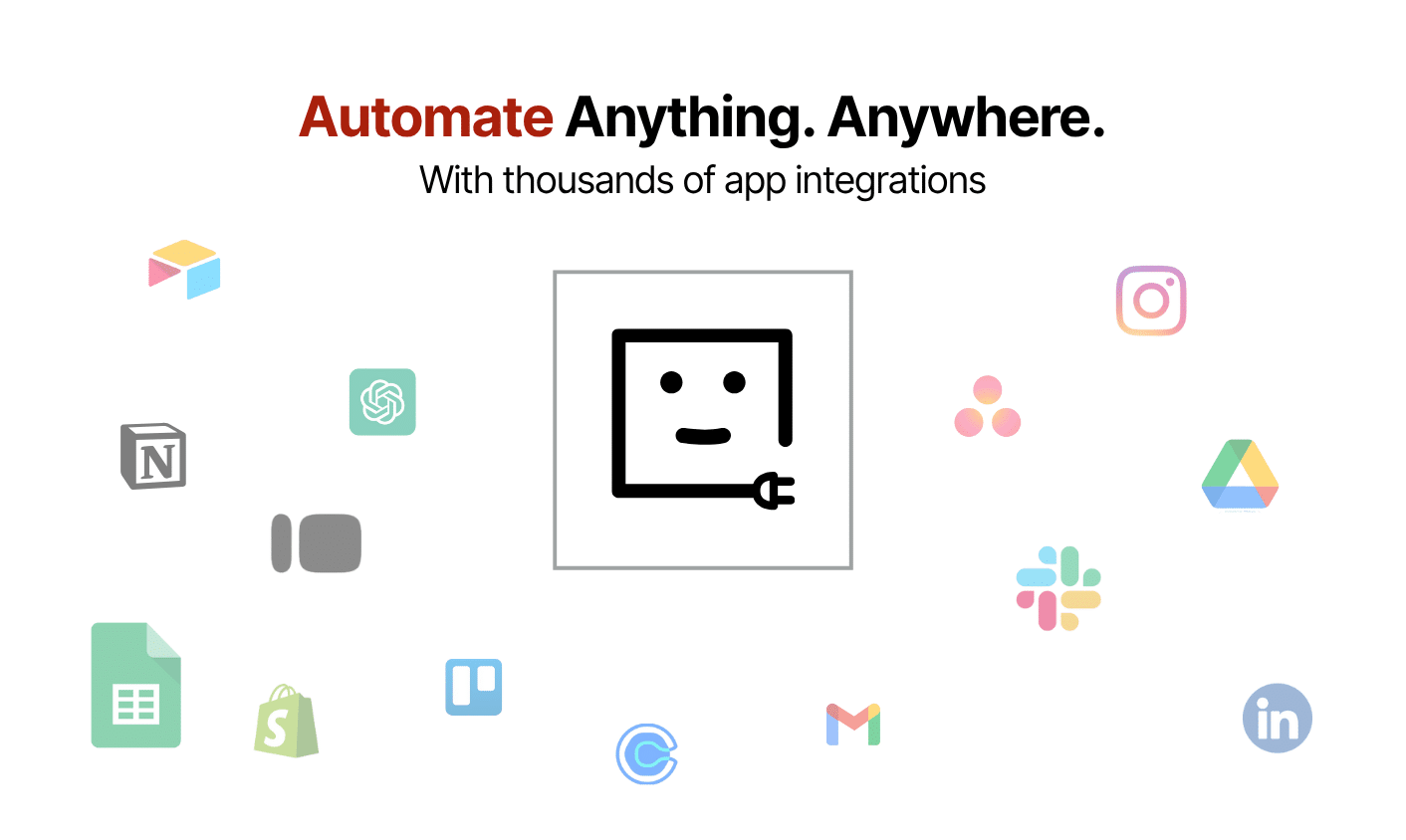CRM statistics for sales show that data-driven teams don’t just work more efficiently—they close more deals. And with digital sales being the new normal, having the right tools is a game-changer.
Let’s be real: traditional sales methods like spreadsheets, endless email threads, and sticky note reminders don’t cut it anymore. With so much of the sales process happening online through web content, targeted ads, and digital outreach, keeping track of every lead and interaction can quickly become overwhelming.
That’s where Customer Relationship Management (CRM) software comes in. A CRM keeps everything organized in one place, helping sales teams stay on top of their tasks, connect with customers more effectively, and work better with the rest of the company.
But how exactly does a CRM improve sales? Let’s break down some key CRM statistics that show just how powerful these tools are in boosting sales.
CRM Statistics Proving CRM’s Growing Impact on Sales
1. 88% of Sales Reps Believe They Need to Anticipate Customers’ Needs
Source: 99 firms
Monitoring national and international market trends isn’t enough in the current economy. 88% of salespeople feel they need to combine this knowledge with the ‘insight selling’ technique, which uses data-driven insights to understand prospects better.
This approach involves using a CRM daily: 25% of sales reps check customers’ communication history, 21% analyze purchase history, 20% track competitor activity, and 15% monitor staffing changes.

2. 85% of Customers Expect Consistent Interactions Across Departments
Source: Clootrack
Customers want to be supported by a unified team, not by one that works in silos.
Implementing a centralized sales management tool is a great way to ensure every department is on the same page. When a customer orders a product, for example, sales can quickly align with logistics for timely delivery, and the customer service team can answer any inquiries.
This workflow boosts internal coordination and improves customer satisfaction.
3. 73% of Customers Expect Companies to Understand Their Unique Needs
Source: Salesforce
Most customers expect businesses to understand their unique needs. A CRM helps personalize interactions, making customers feel valued and more likely to return.
When businesses understand their customers’ preferences and behaviors, they can offer relevant recommendations and support.
These CRM statistics show how CRM directly influences sales performance. Now, let’s dive deeper into the specific benefits CRM brings to the table—boosting productivity, enhancing forecasting, and driving long-term growth.
What are the Benefits of Using CRM?
4. Adopting CRM Can Boost Sales by 29%, Sales Productivity by 34%, and Sales Forecasting Accuracy by 42%
Source: Review42
Businesses need the right tools to deliver extraordinary results, and CRM software is created to do just that.
As a sales enablement tool, CRM systems empower salespeople to be more productive by offering prominent features such as sales process automation, data visualization and analysis, performance reporting, and customer data management.
5. CRM Can Cut Down the Sales Cycle by 8-14%
Source: Nucleus Research
The sales cycle length may vary from business to business, but one thing is sure, every organization wants to have the shortest sales cycle. Adopting a tool like Pipeline CRM can help reduce the sales cycle by 8-14%.
How? Many CRM solutions offer automation workflow and email/campaign tracking features—allowing salespeople to move faster in contacting prospects whenever they see a proposal being opened. They’re pursuing hot opportunities, not cold leads.
6. CRM Significantly Improves Customer Retention and Satisfaction by 47%
Source: Capterra
CRM helps attract new customers and maintain existing ones.
47% of the surveyed businesses agree that CRM helps them increase customer retention and satisfaction, 45% see an increase in sales revenue, and 39% feel that CRM opens up more opportunities for upselling/cross-selling.
7. For Every Dollar Spent, CRM Pays Back $8.71
Source: Nucleus Research
Back in 2014, businesses saw an average return of $8.71 for every dollar spent on CRM. Fast forward to 2023, and that number skyrocketed to around $30.48 per dollar invested. This outcome didn’t only apply to large enterprises using giant CRM pipeline management solutions but also to small organizations using smaller point solutions.
8. 74.5% of CRM Users get Their Money Back Within a Year
Source: Founder Jar
Businesses are seeing faster returns. 74.5% of CRM users get their money back within a year, and half see ROI in just six months. On average, companies break even in about 13 months.
Beyond just improving sales numbers, how do teams actually use CRM in their daily workflow? Let’s take a look at the most popular CRM features and how they help businesses stay organized and efficient.
How Teams Use CRM Tools
9. Calendar Management and Email Marketing Are the Most Used CRM Features, and Social Media Integration Is the Most Desired
Source: Capterra
- Calendar management and email marketing: you can manage your calendar and emails individually, but this is counterproductive. CRM works as a hub that integrates calendars, emails, and other sales/marketing software so you can easily see what needs to be done and what tasks can be automated with a CRM.
- Social tools integration: social media presence is crucial in sales, as it serves as a valuable platform for discovering and engaging potential customers. However, many sales representatives still rely on third-party applications to collect social media contacts. This issue may soon be addressed, as numerous sales CRM tools are beginning to offer limited social integration features, often referred to as “Social CRM.”
How CRM Software Improves Your Team’s Workflow
Another interesting sales CRM statistic is about the tasks salespeople think they spend too much time doing. On average, 38-42% of the surveyed sales reps agree that discovering a customer’s needs, researching competitive activity, creating follow-up tasks, and reviewing pipelines take considerable time (Testimonial Hero)

CRM tools significantly reduce time spent on administrative tasks, freeing sales reps to focus on closing deals. Solutions like Pipeline CRM take this even further by offering automation, advanced reporting, and multi-pipeline management.
This is how using a CRM system like Pipeline CRM can maximize your time:
- Automatic recurring deal – set up specific sales steps on auto-pilot when certain criteria are met.
- Advanced visual reporting – create customized charts to compare your team’s performance, predict future deals, view patterns of successful deals, and more.
- Multiple pipelines management – accurately track multiple sales workflows for your different processes, products, and services.
The right CRM is a worthy investment that can streamline your sales process, improve collaboration, and ultimately drive higher revenue. If you’re ready to see the benefits for yourself, join over 18,000 users who’ve already unlocked their potential with Pipeline CRM.
FAQs About Sales Productivity Statistics with CRM
1. What Are the Most Important CRM Features for Sales Teams?
CRM features such as automation, pipeline management, and reporting are essential for sales teams. These features streamline workflows, track customer interactions, and enhance forecasting accuracy. For a deeper look at how these features and others are evolving, explore our latest insights on CRM trends shaping the industry this year.
2. How Does CRM Software Improve Sales Productivity?
CRM software enhances sales processes by automating tasks, organizing customer information, and facilitating communication. This enables sales teams to concentrate more on selling and less on administrative duties, resulting in increased productivity. Studies have found that businesses that use CRM software experience a 34% increase in sales productivity.
3. How Can Pipeline CRM Benefit My Sales Team?
Pipeline CRM offers tailored solutions designed to enhance your sales processes. With features like sales process automation, data visualization, performance reporting, and customer data management, Pipeline CRM empowers your team to work more efficiently and close deals faster. Experience these benefits firsthand by signing up for a 14-day free trial today.



